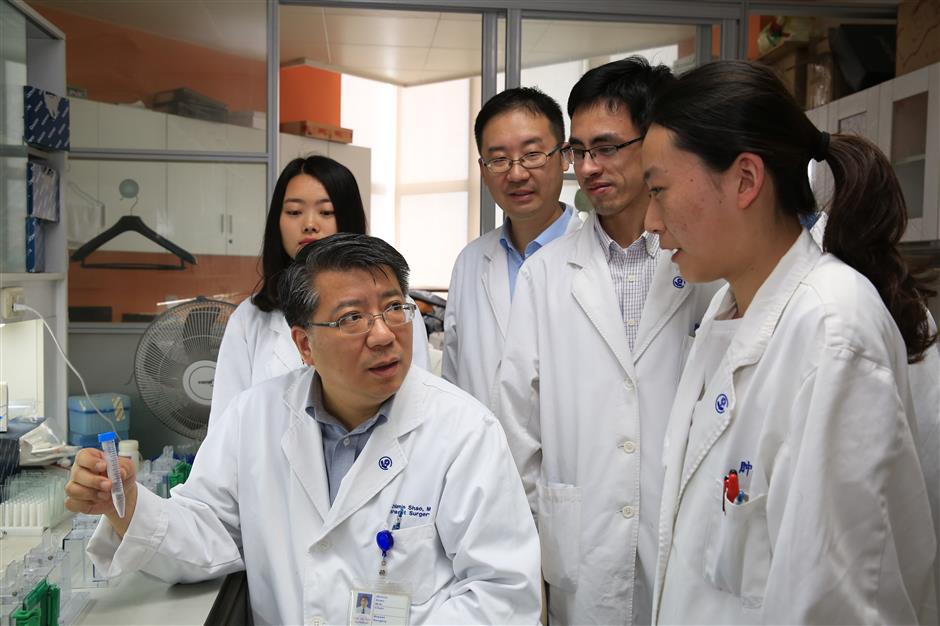Shanghai develops breast cancer multiple-gene testing, increasing precision diagnosis

Dr Shao Zhimin (center) discusses with his students at the lab.
The first Chinese-based breast cancer multiple-gene testing technology was put into industrial development in an effort to benefit more patients.
The technology with information on 539 key genes playing important role in breast cancer was developed by experts from the Shanghai Cancer Center. It's the nation's first self-developed breast cancer gene testing technology being transferred for commercial and industrial use.
It was sold at 31 million yuan (US$4.5 million) to a company, which will cooperate with the Shanghai Cancer Center to develop gene testing products, to boost precise diagnosis and treatment on breast cancer for Chinese patients, the center said on Thursday.
The Shanghai Cancer Center began carrying out multiple gene testing on breast cancer in 2018. Since then, over 12,000 patients have benefited from the technology.
"Breast cancer is a disease with strong heterogeneity on molecular and clinical features, since it involves multiple genes and genetic mutations. So precise treatment based on molecular subtyping is a major solution. Genetic information is extremely important for treatment plans and after-treatment evaluation," said Dr Shao Zhimin, director of the breast surgery department.
"Multiple-gene testing technology provides evidence for precise treatment. The information transferred for industrial development contain genes targeting Chinese breast cancer patients, making up for the shortage of previous genetic databases mainly containing Western patient information."
This technology with 539 key mutated genes can achieve comprehensive testing through one chip, based on which doctors can provide more choices for treatment, forecast the risk of inheritance, and predict treatment effects and relapse risk for a more individualized, effective and precise therapy, experts said.
Breast cancer is the most prevalent female cancer in China, which has over 400,000 new cases each year.















